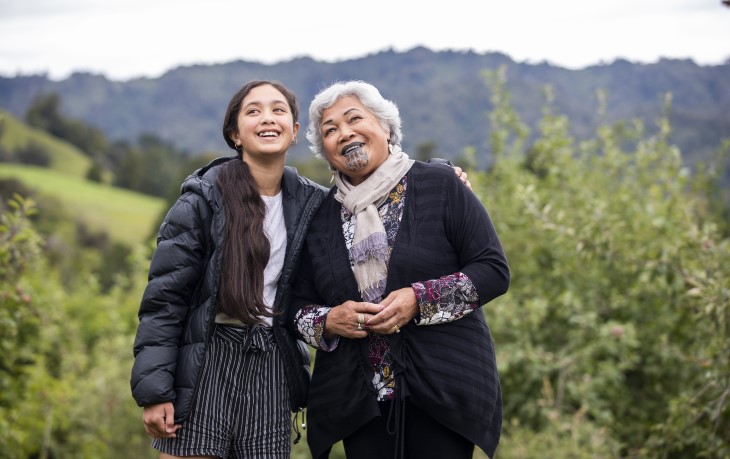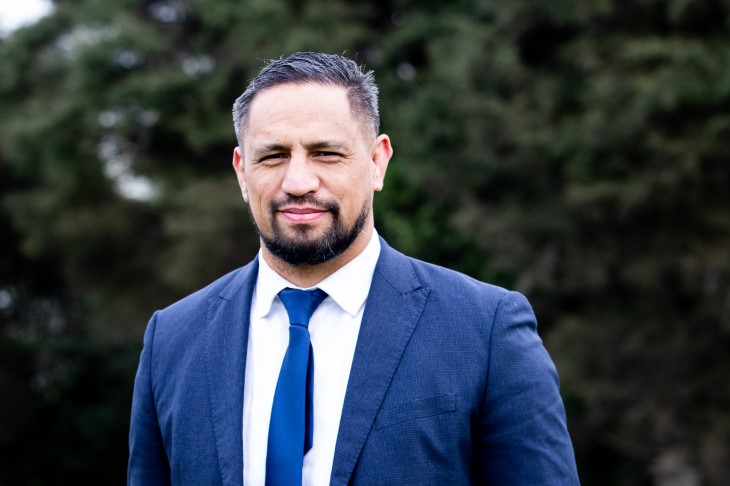ĀKI aiming to put whānau Māori in control of wellbeing
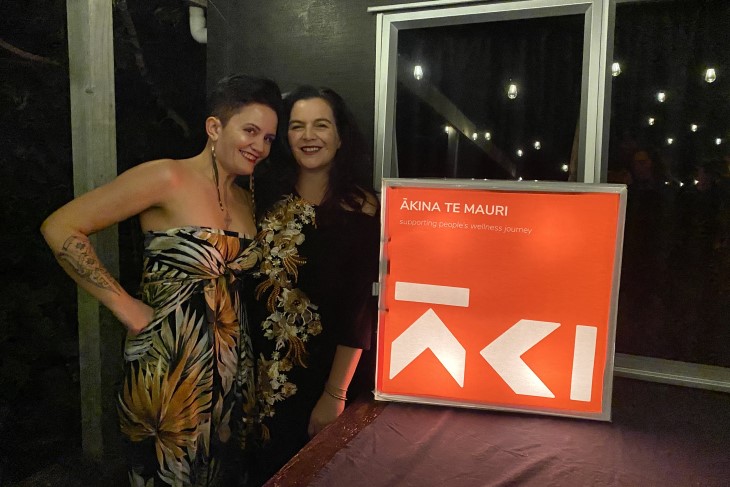
The result of a shared passion between wāhine, ĀKI Innovations are aiming to improve health and wellbeing outcomes for Māori and have received a grant from our Innovation Fund.
The simple act of watching a movie changed everything for Marcia Ranginui Charlton and Marlana Maru.
The two wāhine Māori had been friends for a long time after meeting while working together as social workers for Child, Youth and Family. They were both passionate about improving wellbeing amongst whānau Māori but it wasn’t until a movie night with a group of friends that they decided to do something of their own about it.
The film in question was ‘Waru’, a powerful drama about the tangi (funeral) of a small boy who dies at the hands of his caregiver, and how the boy’s death impacts the local community.
Marcia and Marlana describe ‘Waru’ as a must-see for all New Zealanders and say it was the spark that led to them setting up ĀKI Innovations Ltd.
“That really was the catalyst for us to say we can’t continue to work within the systems we’re working within now – we need to do something different, it needs to change,” says Marcia (Ngāti Ruapani and Tūhoe).
“And we knew that transformation needed to start with us. So from that we set up ĀKI as a kaupapa Māori provider – we weren’t quite sure of what and we wouldn’t actually define ourselves as a health service,” she adds.
“We would just say we’re a kaupapa Māori service and at the centre of what we do is wellbeing.”
The Waikato-based ĀKI offers support with injury rehabilitation, connections into rongoā Māori (traditional healing) and guidance through kaitiakitanga (guardianship and protection).
At the centre of ĀKI is the ethos of Māori upholding the right to assert and determine their own health, wellbeing and aspirations through mana-enhancing practices.
“We’re interested in anything that will help us support and grow the wellbeing of whānau Māori and particularly those that are disengaged,” Marcia explains.
“So if Māori don’t have access to services or are not turning up at the door to be able to access those services, how can we get out there and address that by making sure we’re on their doorstep and are taking it out to them if needed?”
ACC provides boost through Innovation Fund
ĀKI made great strides last year after firstly securing a Training for Independence contract with ACC and then earning a Ministry of Health rongoā Māori contract to provide traditional healing services across the Waikato region.
ĀKI is also one of 12 providers who have partnered with us to design kaupapa Māori health services in the Tainui waka rohe (region).
First members appointed to kaupapa Māori health services panel
A further boost arrived in August of this year when ĀKI was named as one of six recipients of a grant from the ACC Innovation Fund.
The fund was established to reward and support innovations in the health sector that will help New Zealanders better recover from injury.
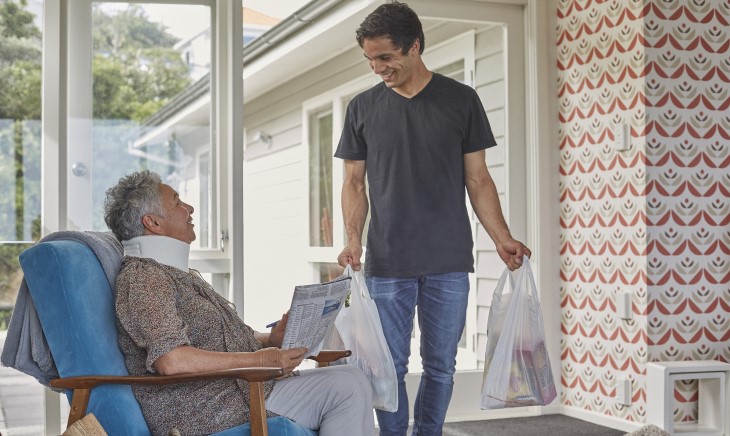
Over 100 applications were received and the calibre of submissions was so impressive that we increased our funding to support more initiatives than originally planned. Each recipient has been awarded $100,000 to support their innovative project.
“ĀKI was one way for us to be able to do something different and different to us means challenging systems that aren’t set up for whānau Māori and being innovative – hence our name of ĀKI Innovations,” says Marlana (Ngāti Maniapoto and Whakatōhea).
“So when we saw the Innovation Fund we were like, ‘Wow, that’s us’. We were really clear in our application that this is a kaupapa Māori project and we’re unapologetically Māori in our approach to things.”
Helping Māori bounce back from brain injury
ĀKI received its grant for the development of an integrated assessment tool for tāne Māori who suffer a traumatic brain injury (TBI) in the Waikato region.
The tool will consider the holistic needs of kiritaki (clients), underpinned by a culturally appropriate framework. This will be supported with the introduction of a kaimanaaki (navigator) role.
It is hoped that providing whānau-centred rehabilitation services with the help of kaimanaaki will facilitate access to the right services at the right time. This pathway aims to improve whānau outcomes and increase trust in ACC services through early engagement and better communication.
Marcia is passionate about this area as she was previously the manager of a residential service for traumatic brain injuries. She says 70 per cent of the men that needed the service were Māori, many of whom didn’t have a safe space to recover or the necessary whānau support.
Marlana did not have previous experience of the brain injury field but has become more familiar with the lack of support for Māori in this area over the past year.
“In the Waikato, we have a large population of tāne Māori who have experienced a brain injury and all the research and literature we’ve read have confirmed that Māori need a particular approach, otherwise they’ll be deemed as being disengaged – they don’t turn up or drop off early, which means their needs aren’t being met,” she says.
Connecting with communities and whānau
Marcia and Marlana both believe the key to improving health and wellbeing outcomes for Māori lies in building relationships.
“Standing outside the community and throwing great ideas at them is not helpful,” Marcia says. “But connecting to that community and asking them for solutions is allowing Māori the opportunity to know what’s best for Māori and to listen to that.”
The importance of relationships and personal communication extends to how they’re looking to treat those in their care.
“We know if we connect with them right at the beginning then it’s going to have significant lasting impacts on their rehabilitation. So that’s where we’ve focused our project, engaging with somebody right at the start – not waiting for a few months while everyone gets themselves sorted,” Marcia says.
“We want to actually get into the hospital, build a relationship from there and include whānau early on. The biggest thing is for whānau to have a voice and be consulted, be considered and be invited to participate in supporting their whānau member,” she adds.
“Typically, they’re excluded or on the edges. We want them to be central to the process and I think that in itself will make a huge difference to the wellbeing of that individual kiritaki.”
Marlana believes the culturally appropriate approach of ĀKI will ensure their traumatic brain injury project is a success.
“Again, if we go back to the research, we know that the traditional assessments and treatments don’t always work for Māori – they’re not appropriate and aren’t done in the right time,” she says.
“That’s a core part of our values – making sure the right person is involved at the right time. We’re hoping doing things in that particular way will make a positive impact for whānau and help their loved one rehabilitate and gain whatever sense of wellbeing they can.”
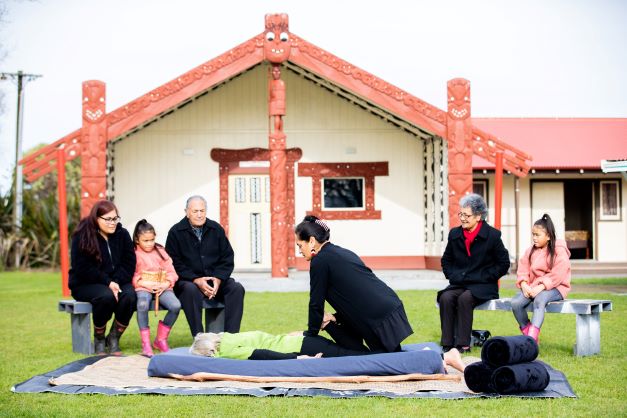
Putting the kiritaki in the driver’s seat
That sense of wellbeing may be different for everyone and one of the aims of ĀKI is to put each kiritaki in control of their own rehabilitation, as Marcia explains.
“Treatment is traditionally very funding-driven and provider-driven so we’re trying to say, ‘Hold up, let’s back that up – who is this actually about? Let’s make this about the kiritaki and their whānau – where do they want to be? What does rehabilitation look like in their world?’
“For example, for a certain kiritaki that could look like they’re able to get back on a boat fishing, that’s their 100 per cent wellness. So we need to work from there and ask, ‘What are the steps we need to get you there?’, rather than us just saying, ‘Well, you need to be able to walk’ or whatever.
“We want to be able to wrap around them and allow them to drive where they want to be, how they want their rehab to look and who they want to engage with. So then they’re in the driver’s seat and are going where they want to go, not where you’re telling them they have to go.”
More information about ĀKI Innovations and the services they provide is available on their website.



